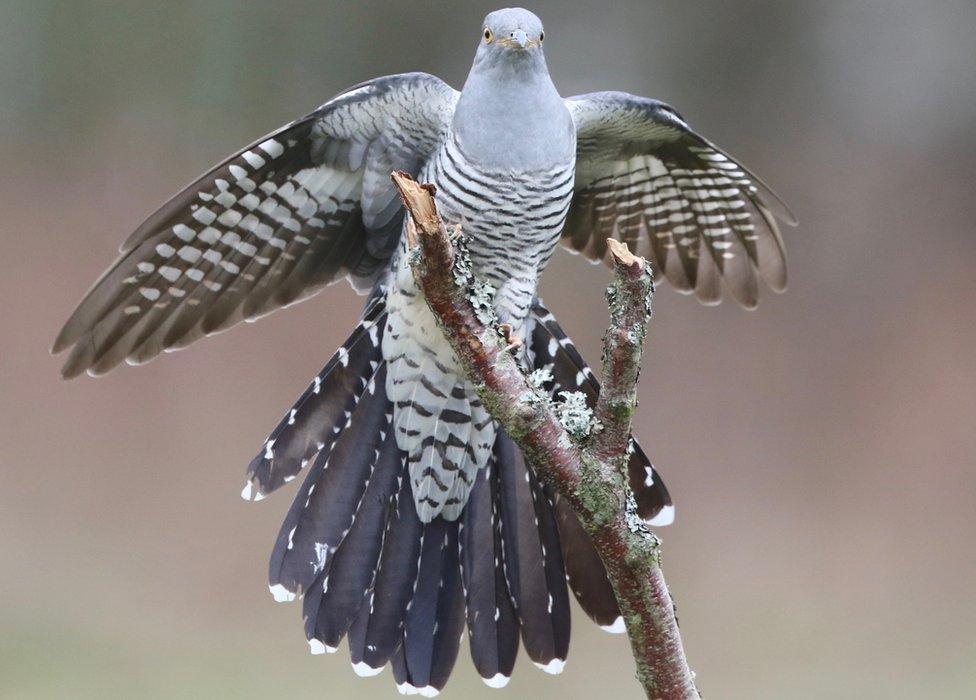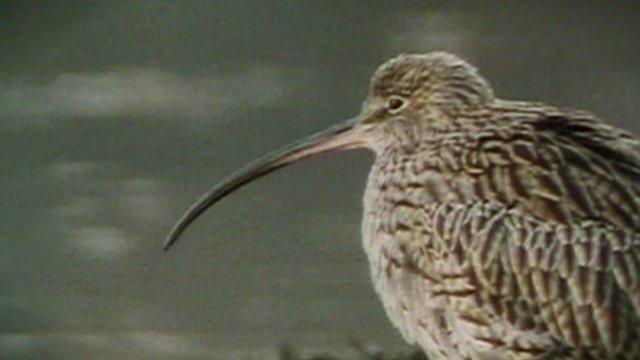Epic 7,500-mile cuckoo migration wows scientists
- Published

The cuckoos' journeys have been avidly followed on social media
One of the longest migrations recorded by any land bird is about to be completed.
Using a satellite tag, scientists have monitored a cuckoo that has just flown more than 7,500 miles (12,000km) from southern Africa to its breeding ground in Mongolia.
The bird has survived ocean crossings and high winds after traversing 16 countries.
It has been, say scientists, "a mammoth journey". The satellite-tagged common cuckoo (Cuculus canorus), named Onon after a Mongolian river, set off from its winter home in Zambia on 20 March.
Onon is one of five Cuckoos that were satellite tagged in Mongolia last summer by the Mongolia Cuckoo Project - a joint venture between local scientists and the British Trust for Ornithology (BTO) to monitor long-distance migration.
Onon has crossed thousands of kilometres of the Indian Ocean without stopping, flying at an average speed of 60km/h and traversing countries as far apart as Kenya, Saudi Arabia and Bangladesh.


Yet out of the five birds tagged, Onon is the only one to have been recorded as finishing its astonishing return journey.
Another tagged cuckoo, named Bayan, which spent part of the winter next to Mt Kilimanjaro in East Africa, got as far as Yunnan in China - but then is believed to have either died from exhaustion or been killed for food.
It flew 10,000km in just two weeks, prompting scientists to believe it would have arrived so hungry and tired it may not have been sufficiently vigilant to stay out of danger.
The BTO's Dr Chris Hewson says the satellite tagging project has revealed much about long-distance migration.
"I think the big takeaway is that the birds are able to travel so far and often so fast that they must be able to find suitable conditions for fattening and also know exactly where to go to get favourable wind conditions to help them, for instance, to cross the Indian Ocean," he said.
"So the costs of migration clearly aren't as great as we thought in the past."
But the dangers for these migrating birds are ever-present, from predators, including poachers, to storms, to starvation.
Yet - as Dr Hewson points out - at a time when very few of us are able to fly anywhere due to the coronavirus, there is something reassuring about a bird travelling such huge distances, showing that the globe is still working.
The birds' journeys have been avidly followed by many on social media. One user tweeted in response to Onon's safe arrival in Mongolia: "Love this… the little guy is doing all the flying we can't do! Bringing us places. Thanks for sharing!"

BBC Security correspondent Frank Gardner is President of the British Trust for Ornithology.
More details of the cuckoos' journey can be found at www.birdingbeijing.com, external
- Published18 February 2020

- Published13 July 2012
